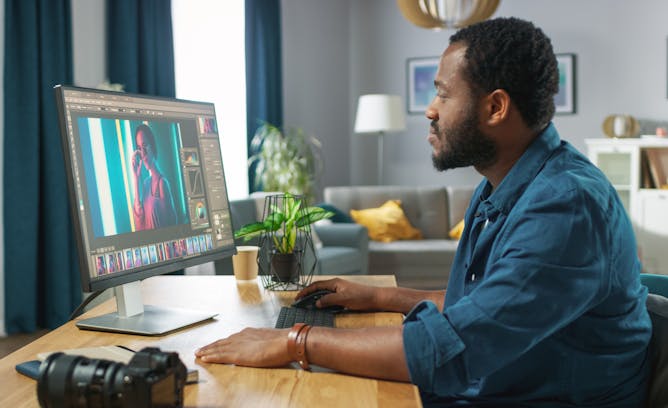
If you know how photo editing works, you might have a leg up at spotting fakes.
Gorodenkoff/Shutterstock.com
Mona Kasra, University of Virginia
People fall for fake photos regardless of whether they seem to come from Facebook or The New York Times. What actually helps?
|
|
|
Economy + Business
|
-
David Cortright, University of Notre Dame
Trump says he plans to announce 'major' new sanctions on Iran in response to the attack on a US drone. A peace studies scholar explains why sanctions rarely work.
-
Amanda Lotz, Queensland University of Technology
US lawmakers and regulators are beginning to investigate big tech's growing power, but they need to look beyond size and into their very natures.
-
Sophie Mitra, Fordham University; Debra Brucker, University of New Hampshire
In the US, poverty is measured by income level. But that measure misses many other aspects of poverty -- like unemployment, poor health and a lack of health insurance.
|
|
|
|
Ethics + Religion
|
-
Jason Ashe, University of Maryland, Baltimore County; Danielle L. Beatty Moody, University of Maryland, Baltimore County
There are many conversations these days around 'successful dying.' Two African American scholars argue why these conversations need to include race and how it impacts life span.
|
|
Most read on site
|
-
Steven DeKosky, University of Florida
With fear of a diagnosis of Alzheimer's a constant concern for many seniors, they turn to supplements. A recent study suggests they'd be better off keeping their money.
-
Derek M. Griffith, Vanderbilt University; Elizabeth C. Stewart, Vanderbilt University
Two experts ask whether dads are making their health a priority. Evidence suggests not. Pressures to provide income often hold fathers back.
-
Gabriel Filippelli, IUPUI
Even the tidiest space has some dust. Researchers are investigating just what these indoor particles are made of and their possible implications for human health.
|
|